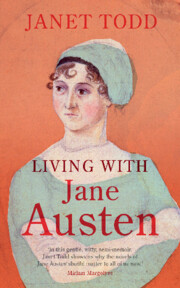OF VIRTUES AND SINS / DE VIRTUDES Y PECADOS
Most people have heard of the Seven Deadly Sins, but not
that many know there are Seven Heavenly Virtues.
La mayoría de la gente ha oído hablar de los
Siete Pecados Capitales, pero pocos saben que hay Siete Virtudes Celestiales.
These virtues are the counterpart of the sins. Against
Pride, we have Humility, against Envy, there is Charity, Generosity is the
opposite of Greed, Patience counters Wrath, Diligence fights Sloth, Temperance
controls Gluttony and Chastity defies Lust.
Estas virtudes son la contrapartida de los
pecados. Contra la Soberbia, está la Humildad, contra la Envidia, existe la
Caridad, la Generosidad es lo opuesto a la Avaricia, la Paciencia pone fin a la
Ira, la Diligencia lucha contra la Pereza, la Templanza controla la Gula y la
Castidad desafía a la Lujuria.
However, the important thing to keep in mind here if you
are seeking perfection is moderation, for as Aristotle said, the virtues are
the midpoints between extremes. An excess of a good trait may also be a defect.
Sin embargo, lo importante a tener en cuenta si
buscas la perfección es la moderación, puesto que como dijo Aristoteles, las
virtudes son el punto medio entre dos extremos. Un exceso de una buena cualidad
también puede ser un defecto.
Thus, too much Humility can become Self-loathing, an excess
of Charity can become Servilism, an excess of Generosity tends to Wastefulness,
too much Patience can lead to Apathy, exaggerated Temperance may lead to Deficiency,
excessive Diligence can turn into Workaholism and Chastity can degenerate into
Prudishness.
Así, demasiada Humildad puede redundar en
Autodesprecio, un exceso de Caridad puede acabar siendo Servilismo, demasiada
Generosidad tiende al Derroche, el exceso de Paciencia acaba en Apatía, la
Templanza exagerada puede traer la Deficiencia, demasiada Diligencia se
convierte en Adicción al Trabajo y la Castidad excesiva puede degenerar en
Pudibundez.
Here are two writing activities you can practice if you are…DILIGENT!
Aquí tenéis dos ideas para escribir sobre virtudes y
pecados si es que sois…¡DILIGENTES!
1. What about your character? Which of these sins is your
weakness? Which of these virtues is your strength? / ¿Y
tu carácter? ¿Cuál de estos pecados es tu debilidad? ¿Cuál de las virtudes es
tu fuerte?
2. Write a short story-like example of each sin and /or its
corresponding virtue. For example: Leoncio never does his homework because he is
a lazy bum. His cousin Baudelio, who is in the same class as he is, is a grind
who worries a lot about Leoncio, to the point of even doing their homework
twice so Leoncio will have something to hand their teachers. Though he is in
truth left-handed, Baudelio can write with both his hands and he fakes what
passes for Leoncio’s handwriting with his right hand. Is Baudelio diligent or
workaholic? / Escribe una historieta cortita que sirva de ejemplo de
cada pecado y virtud opuesta. Por ejemplo: Leoncio
nunca hace sus deberes porque es un vago inmundo. Su primo Baudelio, que está
en la misma clase que él en el cole, es un empollón que se preocupa muchísimo
por Leoncio y que hace los deberes dos veces para que Leoncio tenga algo que
entregar a sus maestros. Aunque en realidad es zurdo, Baudelio puede escribir
con ambas manos y falsifica la letra que pasa por ser de Leoncio con su mano
derecha. ¿Es Baudelio diligente o un adicto al trabajo?
We found the images that illustrate this post on Images from the Internet. The image of the sins has animales represent each sin, that of the virtues is by Pollaiolo and by Boticelli, and that of Aristotle is part of a painting by Raphael.
Encontramos las imágenes que ilustran esta entrada en Imágenes de Internet. La imagen de los pecados representa a cada pecado con un animal, la de las virtudes es de Pollaiolo y de Boticelli, la de Aristóteles es parte de un cuadro de Rafael.


















.jpg)














